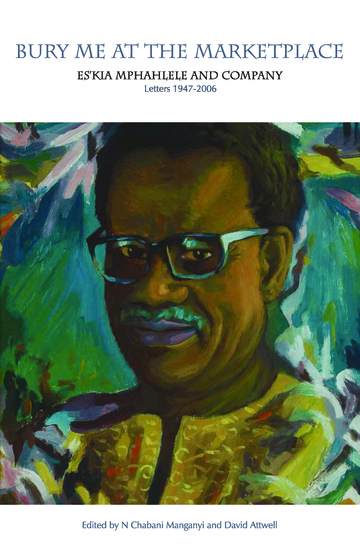Being-Black-in-the-World
- Publication Date: September 2019
- Dimensions and Pages: 190 x 120mm; 152pp
- Paperback EAN: 978-1-77614-368-9
- eBook EAN: 9781776143702
- PDF EAN: 9781776143696
- Rights: World
- Recommended Price (ZAR): 280.00
- Recommended Price (USD): 30.00
Notes by Grahame Hayes
Introduction by Garth Stevens
Afterword by Njabulo Ndebele
In 1973, Chabani Manganyi’s essays raised provocative questions that spoke to the issues of the time, and to his own unique relationship to them. Such a questioning approach remains essential to exploring being human today. – Gerhard Maré, professor emeritus, University of KwaZulu-Natal, and author of Declassified: Moving beyond the dead end of race in South Africa
This timely re-publication and thoughtful re-framing of Being-Black-in-the-World is a gift. It honours Chabani Manganyi’s seminal and historic contribution to understanding blackness as embodied and socially embedded, and to thinking about Black Consciousness as a politics of solidarity. It invites intergenerational conversations toward a decolonised world and pays homage to South Africa’s contribution to black radical thought. This text is a must-read. – Zimitri Erasmus, associate professor of Sociology and Anthropology, University of the Witwatersrand, Johannesburg, and author of Race Otherwise: Forging a new humanism for South Africa
Being-Black-in-the-World, one of N. Chabani Manganyi’s first publications, was written in 1973 at a time of global socio-political change and renewed resistance to the brutality of apartheid rule and the emergence of Black Consciousness in the mid-1960s. Manganyi is one of South Africa’s most eminent intellectuals and an astute social and political observer. He has written widely on subjects relating to ethno-psychiatry, autobiography, black artists and race. In 2018 Manganyi’s memoir, Apartheid and the Making of a Black Psychologist was awarded the prestigious ASSAf (The Academy of Science of South Africa) Humanities Book Award. Publication of Being-Black-in-the-World was delayed until the young Manganyi had left the country to study at Yale University. His publishers feared that the apartheid censorship board and security forces would prohibit him from leaving the country, and perhaps even incarcerate him, for being a ‘radical revolutionary’. The book found a limited public circulation in South Africa due to this censorship and original copies were hard to come by.
This new edition is an invitation to a younger generation of citizens to engage with early decolonialising thought by an eminent South African intellectual. While the essays in this book are clearly situated in the material and social conditions of that time, they also have a timelessness that speaks to our contemporary concerns regarding black subjectivity, affectivity and corporeality, the persistence of a racial (and racist) order and the possibilities of a renewed de-colonial project. Each of these short essays can be read as self-contained reflections on what it meant to be black during the apartheid years. Manganyi is a master of understatement, and yet this does not stop him from making incisive political criticisms of black subjugation under apartheid. The essays will reward close study for anyone trying to make sense of black subjectivity and the persistence of white insensitivity to black suffering. Ahead of its time, the ideas in this book are an exemplary demonstration of what a thoroughgoing and rigorous de-colonial critique should entail. The re-publication of this classic text is enriched by the inclusion of a foreword and annotation by respected scholars Garth Stevens and Grahame Hayes respectively, and an afterword by public intellectual Njabulo S. Ndebele.
Foreword – Garth Stevens
Introduction
Chapter 1 Who Are the Urban Africans?
Chapter 2 Black Consciousness
Chapter 3 Us and Them
Chapter 4 Being-black-in-the-world
Chapter 5 Nausea
Chapter 6 Reflections of a Black Clinician
Chapter 7 The Meaning of Change
Chapter 8 Postscriptum – ‘African Time’
Afterword – Njabulo S. Ndebele
About the Author
N. Chabani Manganyi is one of South Africa’s most eminent intellectuals and an astute social and political observer. He has had a distinguished career in psychology, education and in government, and has written widely on subjects relating to ethnopsychiatry, autobiography, black artists and race. Manganyi was the first qualified black psychologist in South Africa.
Contributors
Grahame Hayes is an honorary research associate at the University of Kwa-Zulu Natal, Durban and was one of the founding editors of the journal PINS (Psychology in Society).
Garth Stevens is a professor and clinical psychologist in the department of Psychology, School of Human and Community Development at the University of the Witwatersrand, Johannesburg.
Njabulo S. Ndebele is a prize-winning poet, novelist and essayist who is also a key figure in South African higher education. He is Chair of the Mandela Rhodes Foundation and the Nelson Mandela Foundation as well as Chancellor of the University of Johannesburg.
In 1973, Chabani Manganyi’s essays raised provocative questions that spoke to the issues of the time, and to his own unique relationship to them. Such a questioning approach remains essential to exploring being human today. – Gerhard Maré, professor emeritus, University of KwaZulu-Natal, and author of Declassified: Moving beyond the dead end of race in South Africa
This timely re-publication and thoughtful re-framing of Being-Black-in-the-World is a gift. It honours Chabani Manganyi’s seminal and historic contribution to understanding blackness as embodied and socially embedded, and to thinking about Black Consciousness as a politics of solidarity. It invites intergenerational conversations toward a decolonised world and pays homage to South Africa’s contribution to black radical thought. This text is a must-read. – Zimitri Erasmus, associate professor of Sociology and Anthropology, University of the Witwatersrand, Johannesburg, and author of Race Otherwise: Forging a new humanism for South Africa



